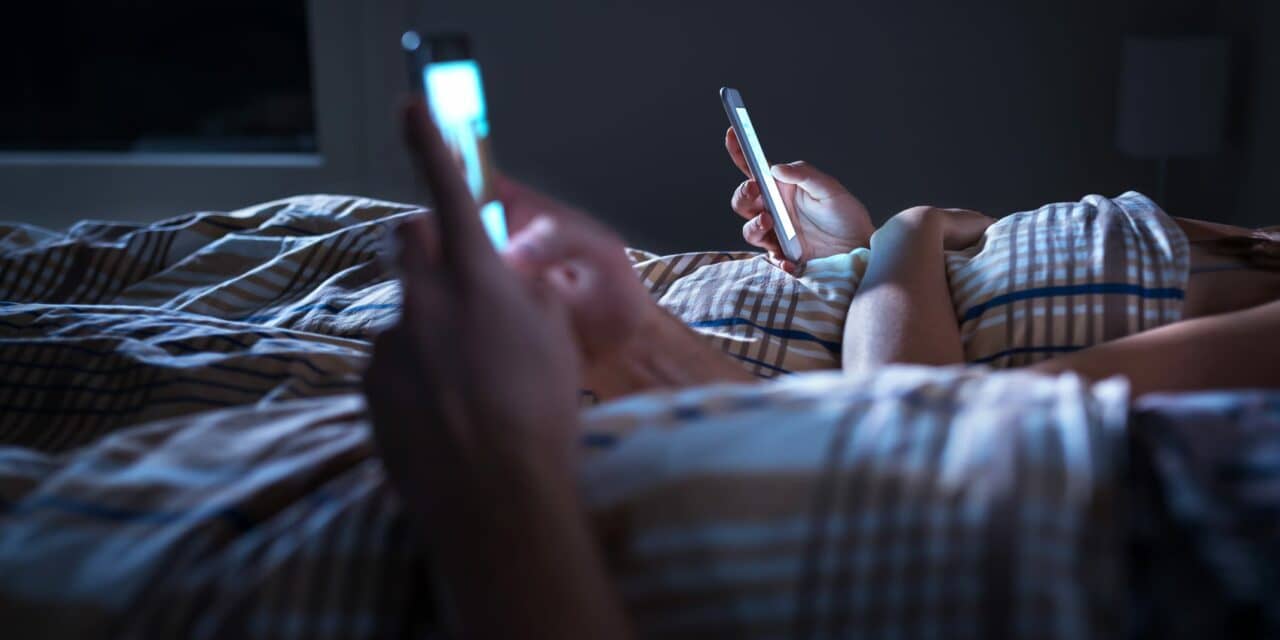A recent survey reveals that the majority of Americans are losing sleep to digital distractions, prompting sleep experts to call for healthier bedtime habits.
The survey from the American Academy of Sleep Medicine (AASM) found that 91% of individuals reported they have lost sleep because they stayed up past their bedtime to binge-watch a TV show, while browsing and buying is also keeping people up at night as 75% of respondents have lost sleep because they stayed up past their bedtime to shop online.
“Bedtime procrastination is a common problem, as people often stay up later than intended while binge-watching a program or shopping online,” says sleep medicine physician Alexandre Abreu, MD, a spokesperson for the AASM, in a release. “It’s important to prioritize sleep so that you can feel good and perform your best throughout the day.”
When having trouble falling asleep, the survey found that half of Americans (50%) watch TV, and 45% use their smartphone. More than eight in 10 people (87%) keep their smartphone in the bedroom, often within arm’s reach, making midnight scrolling and late-night binge-watching an enticing habit that can unknowingly compromise sleep duration and quality.
“With so many digital distractions vying for our time, it can be tempting to watch one more episode or scroll through one more viral video, but anything that keeps us from getting the recommended seven hours of sleep each night can be harmful to overall health and well-being,” says Abreu in the release.
The AASM recommends the following tips to reduce digital disruptions and achieve a better night of sleep:
- Disconnect from devices at night—Turn off all electronics at least 30 minutes to an hour before your bedtime to help prepare for sleep.
- Leave your phone in another room—It’s tempting to go on your phone, so keep it in a separate room at night. If you use your phone for a morning alarm, consider using an alarm clock instead.
- Follow a relaxing nighttime routine—Find something you look forward to doing, like taking a warm bath or shower, reading a book, or journaling to help you wind down at the end of the day.
- Have a sleep schedule—Go to bed and get up at the same time on a regular basis and hold yourself to it. Don’t let scrolling stop you from getting your precious hours of sleep.
- Turn off push notifications—If you must have your phone in your bedroom at night, turn off push notifications and sound to avoid distracting alerts.
The findings are the result of an AASM-commissioned online survey of 2,005 adults in the US that took place from March 24-29.
Photo 144081708 © Tero Vesalainen | Dreamstime.com





